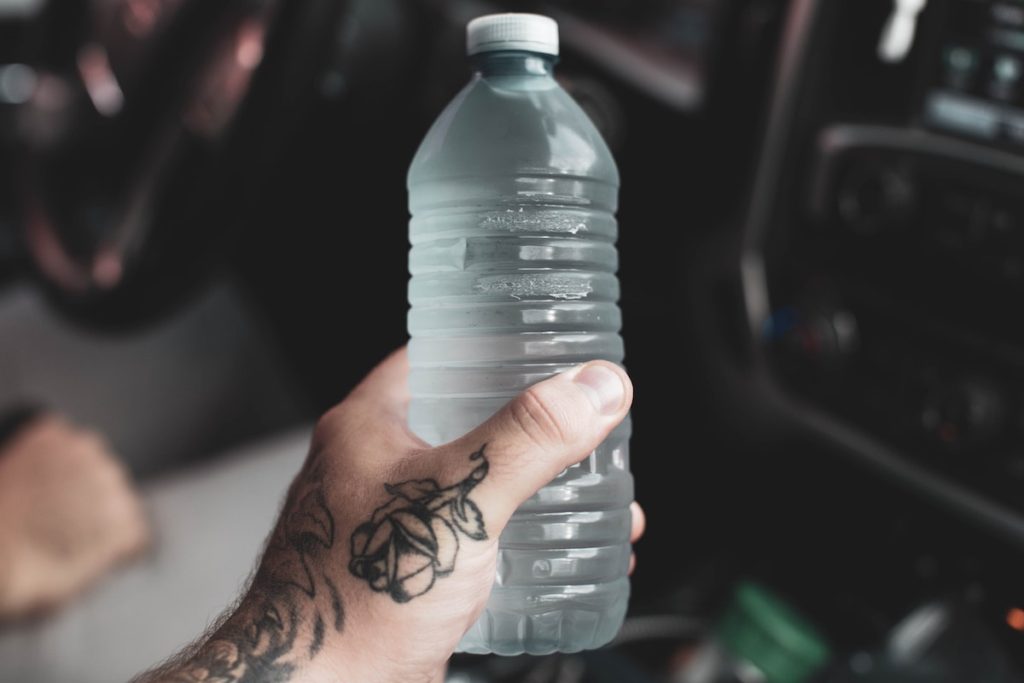Whether it’s needed or not, bottled water has become a staple in modern society.
There’s a necessity for bottled water in communities that lack access to clean, safe drinking water and in emergencies when municipal water becomes contaminated. However, unnecessary consumption of bottled water adds to plastic pollution and has adverse health and environmental impacts.
Convenience and clever marketing have many of us convinced it’s higher quality than treated tap water, making it harder than ever to give up. Americans alone buy an estimated 55 billion bottles of water every year. Further, the Canadian market is expected to grow each year by 6.8% over the next four years.
As consumption of bottled water continues to increase, we must understand how our health and environment are impacted.
So how much “cleaner” and “convenient” is it?
Environmental impacts of bottled water
A study in Spain compared the impacts of tap water and bottled water relative to each other. The study looked at the different environmental effects such as species loss and resource usage from waste generation and disposal, as well as the energy, chemicals and plastic used to treat tap water and package bottled water.
Species loss and resource depletion were up to 3500 times higher for bottled water than tap water.
Science Direct
The most significant impacts on species loss and resource depletion occur during plastic bottle production. This includes the impacts of oil extraction and manufacturing processes required for producing polyethylene terephthalate plastic, aka PET, for the bottles.
These eco-burdens could be reduced if the bottles were produced with recycled PET. Recycling plastics requires energy and water inputs, which means it has an environmental footprint. However, this footprint is lower than producing the bottle with virgin plastic. In addition, incorporating recycled content into new products helps to reduce waste and builds a circular economy.
Health impacts of bottled water
Many factors influence the quality of drinking water. For example, the water treatment used to purify the water or the water source’s proximity to industrial activities can lead to harmful chemical contamination.
Municipal water treatment plants are required to monitor and meet water quality regulations. This, however, isn’t always the case for bottled water companies, and if water quality isn’t monitored, there’s no way to know if it’s contaminated or what the contamination is.
A study showed that 93% of 11 bottled water brands contained microplastics and that bottled water contained 50% more microplastics than tap water.
Forbes
We now know that plastics are everywhere. Plastic pollution has primarily been associated with littering the environment or the stomachs of wildlife. Until recently, when researchers found microplastics in human lung tissue and blood.
Microplastics are plastic particles smaller than 5mm in size. These tiny pieces of plastic form when larger plastics weaken and break down from sun exposure or abrasion. They enter the water and terrestrial landscapes and make their way up the food chain through biomagnification and are ingested by humans.
Plastic pollution aside, plastic bottles can leach harmful hormone-disrupting chemicals into the water it contains, especially when stored in warm places and for extended periods.
Not only that, bottled water uses 2000 times more energy than tap water. This means more greenhouse gas emissions are produced, contributing to climate change, ecotoxicity and smog formation. All of which have health implications.
Time to make the switch
The need to move away from single-use plastics and reduce carbon emissions has never been more apparent. Our reliance on convenience and plastics makes the transition away from single-use plastics complex and challenging. A simple and cost-effective place to start is to fill up your reusable water bottle with tap water and ditch the bottled water for good!
Note: there are sponsored and/or affiliate links included in this guide. This means if you click on one of our affiliate links and purchase a product or service through that link, we may receive a commission for your purchase. As always, these products meet high standards for sustainability and are from brands The Circular Consumer believes in.

